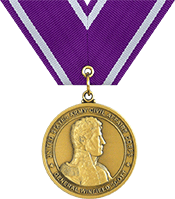Keeping Realism Real: Widening the Aperture on Thucydides
- James Micciche
- Jul 9, 2020
- 3 min read
Updated: Jul 9, 2020
Despite being written nearly 2500 years ago, Thucydides’ “History of the Peloponnesian War” is a seminal work regularly cited, applied, and relevant in 2020 across a myriad of disciplines. His analysis on the war between Athens and Sparta continues to reach beyond academia, often playing a role shaping national policies and creating understanding of contemporary events, such as Vietnam or the Cold War.
Graham T. Allison’s creation of the concept of the “Thucydides Trap” to describe the near inevitably of war between the United States and China is the latest incarnation of using the writings of an ancient Greek historian and general to understand complex situations within the modern world. In “ Restoring Thucydides: Testing Familiar Lessons and Deriving New Ones” Jay Parker and Andrew Novo assert that many of the long standing methods and theories used to apply Thucydides are flawed. They propose that alternative lessons exist when one increases the aperture in which they examine both Thucydides himself and the world in which he lived.
Parker and Novo find that though widely cited by both practitioner and scholar alike, the “History of the Peloponnesian War” leads many into a different kind of Thucydides Trap, focusing only on the immediate outcomes of the conflict as presented by the author and ignore contextual and subnational influences in how they understand and synthesize the text. Parker’s and Novo’s immense knowledge of not just the Peloponnesian War (431-404 BC) but the greater historical context that both led to the war and defined its long term national and systems level outcomes, highlight how many contemporary and enduring theories do not persist when examined through a wider lens.
“Restoring Thucydides” reexamines many well-established concepts that are deeply rooted in a realist and limited reading of “The History of the Peloponnesian War” ranging from alliances and power to agency and competition. While based primarily on international relations theory and historical scholarship, Parker and Novo’s text is written in a manner that provides lessons and insights to those that are not scholars within those fields and promotes a multidisciplinary approach, which is key in understanding the re-emerging paradigm of great power competition.
One of the key lessons that Parker and Novo derive from Thuycidides is that nations have agency and that domestic politics and norms are important in how a nation not only interprets the system in which it resides but also the actions of both rival and ally alike. As Civil Affairs soldiers and marines this is a lesson we must ingrain in our practice as we are responsible with the arduous task of translating national level civil considerations into tangible information to assist the United States Government and joint force commanders. By understanding how and why nations function at the national and subnational level as well as highlighting strengths and weaknesses of both friend and foe in domains of power beyond coercive military force, Civil Affairs elements will directly support great power competition within a multipolar world.
Finally, within a profession often built upon absolutism where the writings of a select few authors are considered infallible people regularly misunderstand or misappropriate singular quotations from Clausewitz, Sun Tzu, Jomini, Sharp, and others. The technique of expanding the aperture in which we assess, contextualize, and analyze the great works in our field will only improve ourselves as practitioners but also the field itself.
Join the Civil Affairs Association on July 17, 2020 at 7PM (EST) as we host Jay Parker and Andrew Novo for a Key Lager Engagement by signing up here or clicking the banner below
About the Author CPT James P. Micciche is an FA59 (Strategist) and former Civil Affairs Officer and is currently a CGSOC student. He has deployment and service experience in the Middle East, Africa, Afghanistan, Europe, and Indo-Pacific.

Cover Image Credit - MIKE BLAKE / DAMIR SAGOLJ / REUTERS / ALESSANDRO0770 / SHUTTERSTOCK / ZAK BICKEL / THE ATLANTIC


